Minor Fourth Year. Masculinity project.
Assumption/
Research question
Jon Bernthal with Shia LeBeouf. Speaks about masculinity, when a boy becomes a man and what is needed for that. What the goal in life is and many more topics they touch on.
REAL ONES With Shia LeBeouf
A Master's Degree in Masculinity
https://www.nytimes.com/2015/08/09/fashion/masculinities-studies-stonybrook-michael-kimmel.html
“There is a Pentagon document,” Dr. Kimmel said, “in which Lyndon B. Johnson is quoted saying he didn’t want to pull out of Vietnam because he wouldn’t be viewed as manly.
“This is the president of the United States proving his masculinity.”
Place Beyond the Pines.
A movie about masculinity. Where the main character is a dad without knowing. The moment he finds out he is supporting his child. The way he does that is by robbing banks which eventually goes wrong. The movie tackles topics like masculinity, adulthood, supporting, poverty, becoming a man and many more.
https://leoninefilms.com/
2013/04/12/masculinities-the-place-beyond-the-pines-2012/
Honey Boy by Shia LeBeouf
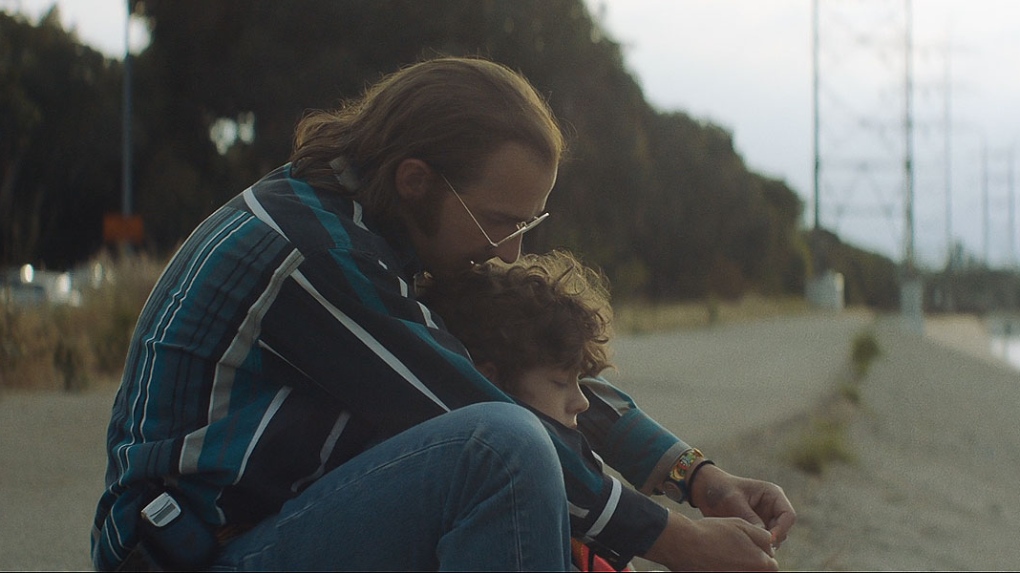
Shia LaBeouf’s turbulent professional and personal life has often been written off as symptoms of child stardom. We’ve seen it with Macaulay Culkin, Lindsey Lohan, and now LaBeouf—actors said to have struggled with the harsh reality of fame at such a young age. In Labeouf’s new semi-autobiographical film, Honey Boy, he proves that it’s much more than child fame that’s been haunting him—it’s the toxic relationship and masculinity that’s he’s endured from his father.
Written by LaBeouf in court-mandated therapy, Honey Boy is a wakeup call that exposes the long-term harm done to boys by emotional distance. After being arrested and sent to rehab, Otis (Lucas Hedges) begins his journey to mandatory treatment. Told that he has PTSD, Otis is forced to reflect on his childhood in therapy to better understand his addiction, pain, and anger. Otis’ youth is shown through the eyes of his 12-year-old self (played by Noah Jupe), revealing his dysfunctional relationship with his father, James Lort, played by Shia Labeouf himself.
Pick a scene and zoom in on that, highlight the scene
https://thereppro
ject.org/masculinity-in-shia-labeoufs-honey-boy/
Break Down Character
Boys to Men: Teaching and Learning About Masculinity in an Age of Change
What do boys in America think about being boys today?
What do they imagine is expected of them? Whom do they look up to, and how are they navigating the transition from being boys to becoming men?
https://www.nytimes.com/2018/04/12/learning/lesson-plans/boys-to-men-teaching-and-learning-about-masculinity-in-an-age-of-change.html
Ask students/men: What does it mean to be a “good man”?
• What qualities do the men you respect and admire have?
• What values and morals do they live by?
• What kinds of things do they say and do?
Why Won’t My Husband Change His Will to Protect Our Baby and Me?
Next, ask: What does it mean to be a “real man”?
• What do people mean when they say “be a man” or “man up”?
• What qualities are “real men” assumed to have?
• How are they expected to speak and act? How are they not supposed to behave?
• What do you notice? What do you wonder?
• Are what it means to be a “good” man and a “real” man mostly similar or mostly different? Why do you think this is? What conclusions can you draw in comparing the lists?
• How do you think these cultural messages affect boys and men? How might they affect girls and women?
In Derek Cianfrance’s latest, masculinity is a lone wolf. The first is Luke (Ryan Gosling), a contract stuntman, who at the time of the film knows exactly three people: his partner-in-crime, his ex-lover, and his infant son. Rejected by his father in his youth, he tries to re-connect with this ex-lover and son – awkwardly and unsuccessfully.
Within The Place Beyond the Pines, Luke Glanton portraiied by Ryan Gosling signifies the masculinity. The reason for that is becasue he understands the need to take care of his family eventhough the mother of his child is with another man, he still wants to provide. He does that providing with good intentions but bad actions. Here will follow a quick break down of the part that Ryan Gosling plays and the character development of Luke Glanton
Luke Glanton works as a stunt driver on a carnaval making minimum wage.
On the fun fair he comes across his ex lover, Romina. They have a short chat but go both their own ways after.
The night Luke rides to the house of Romina, she is not home but her mother is. Holding a child and Luka asks "who is that little guy"?
The next morning Luke quits his job, He does not know what he is going to do next but he does know that he can't support his family on minimum wage.
The mother of Romina answers with "he is yours". There is a look of discomfort on Luke's face.
The next thing Luke does is driving to the place Romina works at. He confronts her about her not telling him he has a child. He wants to be there for his child but Romina os too busy with her own life and other boyfriend. She responds with "It was just a one night thing right"?
In a desperate attempt Luke tries to convince Romina to leave her boyfriend behind and go somewhere else with him and the baby. Romina responds with "nice dream" and walks away.
in this scene, Luke is looking at a local bank in his town, he is contemplating to rob it but is still in doubt.
The moment the light turns green on his face, he has made up his mind. He is going to come up with a plan to rob the place.
Luke robs the place and succeeds, he is chased by the police but manages to get away, with that money he is going to try to support his family. The question is if Romina is going to allow it.
Masculinity / Feminity
The Place beyond the pines
Faces of Masculinity
Exercise
Result
Why do men relate to "literally me" characters so much nowadays?
Hypothesis: Does it have something to do with the "crisis of masculinity" in the modern age that Fight Club tried to warn us about? Emasculation?
Shia LaBeouf sat down with actor Jon Bernthal for a two-hour interview on the latter's Patreon-funded program Real Ones, and the Fury co-stars got real about Shia's life, career and life in recovery.
LaBeouf went on to call the film a “big ‘woe is me’ story about how fucked my father is, and I wronged him.” He claims that he called his father to ask for permission to tell the story, but lied about what he had put in the script. “I remember getting on the phone with him, and him being like, ‘I never read this stuff in the script you sent.’ Because I didn’t put that shit in there,” he said.
Visual Essay Exercise
Let's dive deep in some of the "Literally Me" Characters. For example the Driver from Drive. He is Stoic, isolated and takes out most of his emotions through violence whether this be anger or protecting a women he loves. or in joker, the joker rails against a system he feels has failed him resorting again to violence.
These men cope the same way that many real-life men cope. Plenty of guys get their emotions out through exercise or fighting and on the more extreme end of things there are certainly many cases of men's pent-up anger and loneliness being experessed through violence against women. A main attribute of these characters is that they turn loneliness and dissatisfaction with their role in society outwards into violence. Tyler durden "how much do you know about yourself if you have never been in a fight"
They can be so far distanced from emotion that they have entirely abandoned humanity. Or maybe they feel broken not because they are broken but because they haven't had the chance for candid conversation with others about how they feel. Notably many of the male characters lack the awareness to determine whata exactly is making them so unhappy. This means that even when their pain is a result of the patriarchy they often respond by further pushing themselves towards stereotypical masculinity. They strive for male ideals of success and beauty.
Despite the fact that this is ironically what made them so miserably in the first place. On the other hand women are endlessly told about how the patriarchy affects them and can therefore be quick to label its effects. and what else do these movies show us? That these outlets the fighting, or the murders or whatever the coping mechanism of choice is do not work. At the end of american psycho patrick batemen feels no relief from his confession or even joy in the murders. He is still fundamentally hollow and lacking in real humanity or the end of fight club, the main chracter may find some solace in his human connection to Marla but the crimes he's committed don't bring him any happiness.
Patriarchy in this context is the expectations we place on men and women. When I say that the patriarchy hurts men im talking about the stigmatization of men expressing emotions crying and being vulnerable.
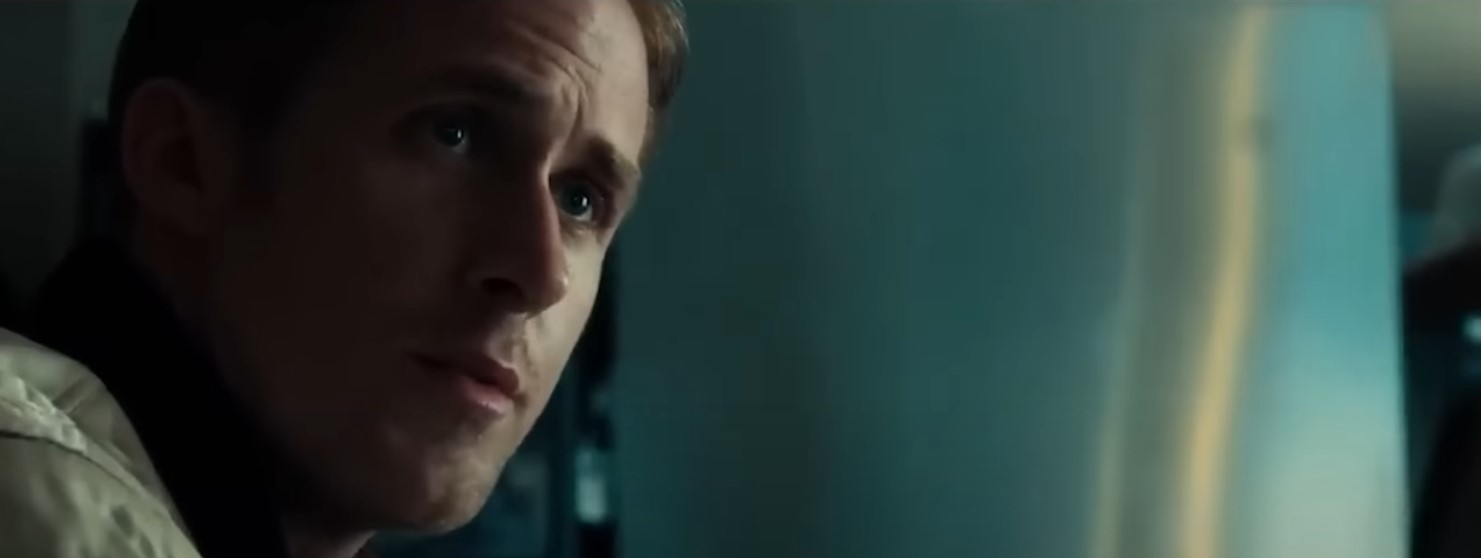
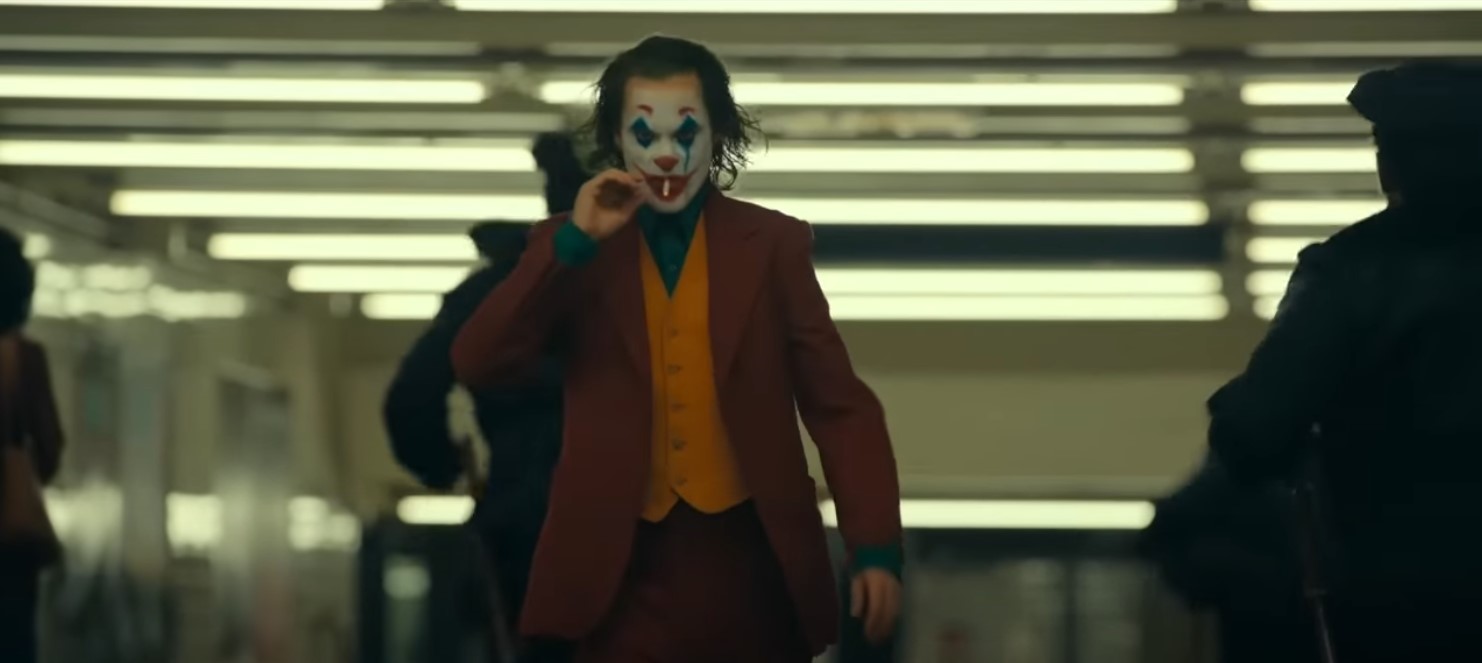
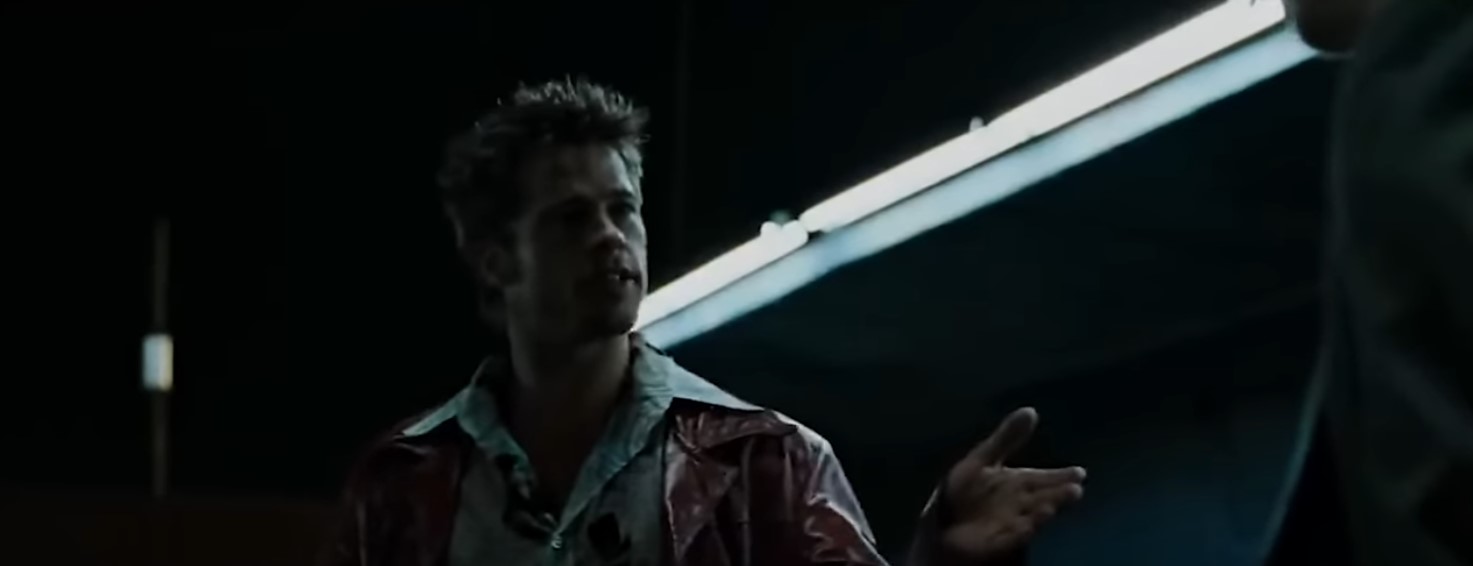
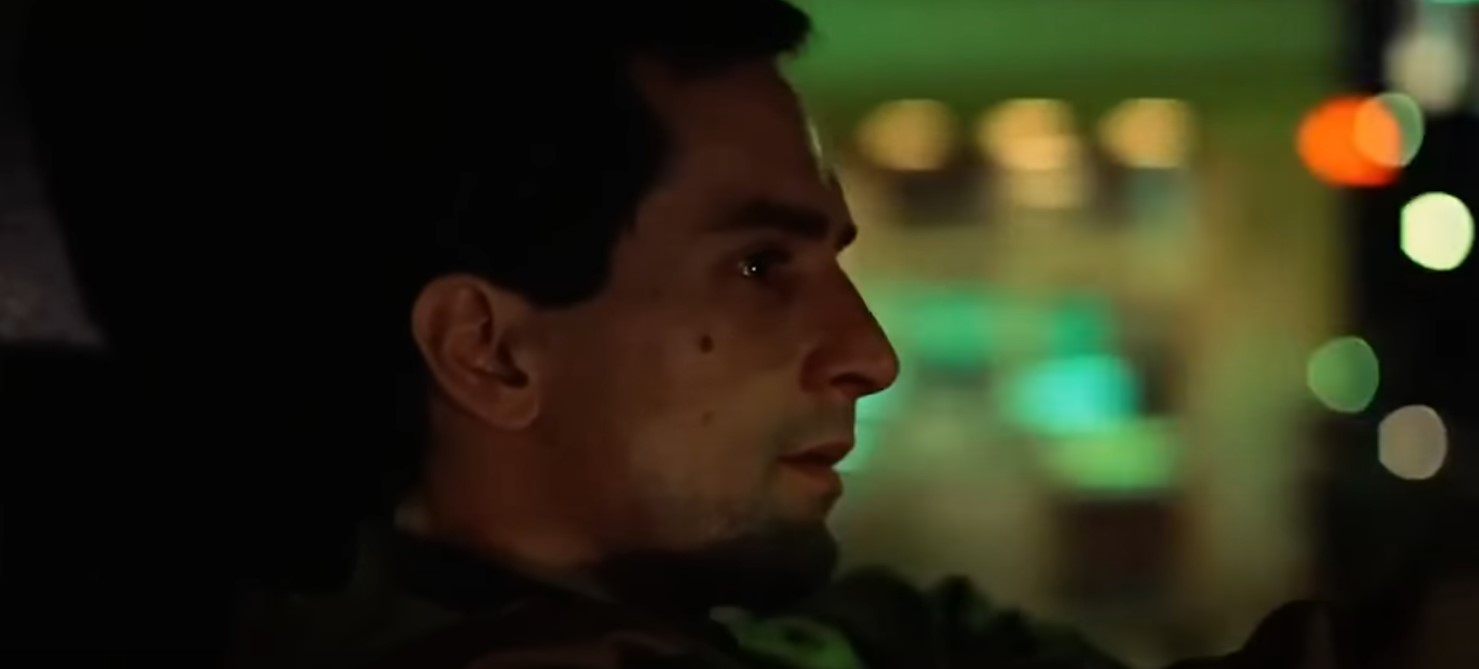
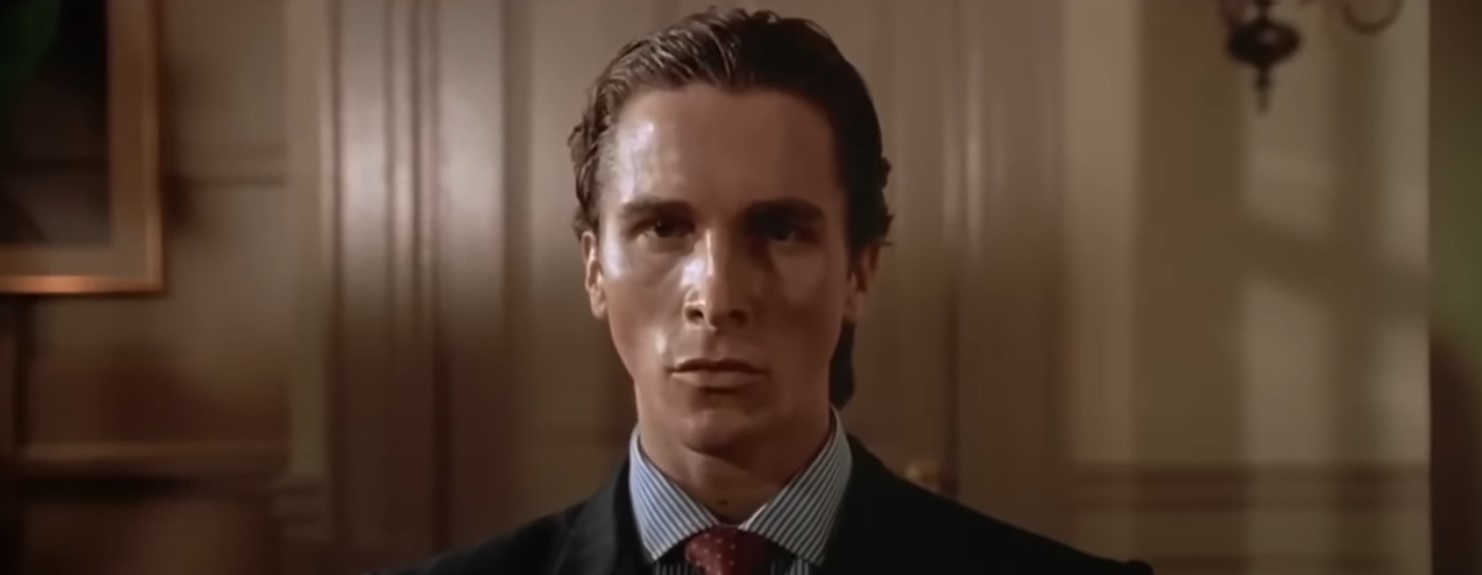
Oszkar, "That Ryan Gosling Feeling" May 5. 2021, Published Online on Youtube. https://www.youtube.com/watch?time_continue=6&v=eranPuw75ao&feature=emb_title&ab_channel=Oszk%C3%A1r
Bqteman, "Literally me." May 7, 2022, Published Online on Youtube. https://www.youtube.com/watch?time_continue=18&v=oqCNjqYYYRI&feature=emb_title&ab_channel=bqteman
Azeeryr, "Literally me" Aug 26, 2022, Pubslihed Online on Youtube. https://www.youtube.com/watch?time_continue=6&v=phxMQGvVMnY&feature=emb_title&ab_channel=Azeeryr
Mental896, "Literally me forever" Aug 26, 2022, Publlished Online on Youtube. https://www.youtube.com/watch?v=T-fO7c9BbRY&t=7s&ab_channel=Mental896
Logan Bry, "Wow, That Fictional Character Is Literally Me" June 18, 2022, Pubslihed on The Current Msu. https://thecurrentmsu.com/2022/06/18/literally-me/#:~:text=%E2%80%9CLiterally%20me%E2%80%9D%20characters%20are%20those,characters%20they%20closely%20relate%20to.
Virginia Kearney, "How to make a visual essay" Aug 31, 2022. Published on OwlCation. https://owlcation.com/academia/How-to-Write-a-Visual-Essay#gid=ci026c7154b00b27c9&pid=how-to-write-a-visual-essay-MTc0NjM5MDkzODM2NDI1MTYx
MLA Citing
"how much do you know about yourself if you have never been in a fight"
Second Part exercise (Rosa)
LADIES AND GENTLEMEN, AND EVERYBODY ELSE,
Caught in the crossfire of sexual harassment politics, I should like to say a word or two as a smuggler between two worlds, the world of “men” and the world of “women” - these two worlds which might very well not exist, were some people not doing their utmost to keep them apart by means of a kind of Berlin gender Wall. I want to give you some news from the “found object” position or rather from that of the “lost subject” – lost during crossing.
https://www.textezurkunst.de/en/articles/letter-trans-man-old-sexual-regime-paul-b-preciado/
Masculinity in fashion menswear
At a moment of unprecedented creativity in men's fashion, this exhibition explores how designers, tailors and artists – and their clients and sitters – have constructed and performed masculinity, and unpicked it at the seams.
https://www.vam.ac.uk/exhibitions/fashioning-masculinities-the-art-of-menswear
Masculinity through photography
In the wake of #MeToo the image of masculinity has come into sharper focus, with ideas of toxic and fragile masculinity permeating today’s society. This exhibition charts the often complex and sometimes contradictory representations of masculinities, and how they have developed and evolved over time. Touching on themes including power, patriarchy, queer identity, female perceptions of men, hypermasculine stereotypes, tenderness and the family, the exhibition shows how central photography and film have been to the way masculinities are imagined and understood in contemporary culture.
Masculinity = social expectations of being a man: The term 'masculinity' refers to the roles, behaviors and attributes that are considered appropriate for boys and men in a given society. Masculinity is constructed and defined socially, historically and politically, rather than being biologically driven.
https://www.artspace.com/magazine/interviews_features/in_depth/what-is-masculinity-in-art-and-do-we-have-to-care-56336
What Is Masculinity In Art, And Do We Have To Care?
Break Down Character
American Psycho
Patrick Bateman - (American Psycho) - 2000
An existential psychopath, Patrick Bateman isn’t a character you’d expect many to identify closely with, or is it the exact opposite? The raging serial killer struggles to keep his mask of sanity in a seemingly insane world that corrodes his mind and sense of identity.
Conformity is the word of the day when it comes to this film and it is the biggest theme of the movie. Reflected through 80’s yuppie culture, everyone talks the same, walks the same, pretends to have the same values, and especially obsesses over their social status/materialistic prowess.
All of this grows a burning sense of hollowness in our main character along with alienation. His peers view him as a dork and he seemingly has no spot to fit in, which is what he wants most in the world.
While pretending to care about the homeless and world peace, Patrick simultaneously goes on a killing spree across the underbelly of Manhattan. This world reflects an automatized one with an obsession of image over individual.
Patrick wants to escape, he wants meaning in a seemingly meaningless world, he has no purpose, nothing bigger than himself, and no connections. All in all, he’s a true American Psychopath.
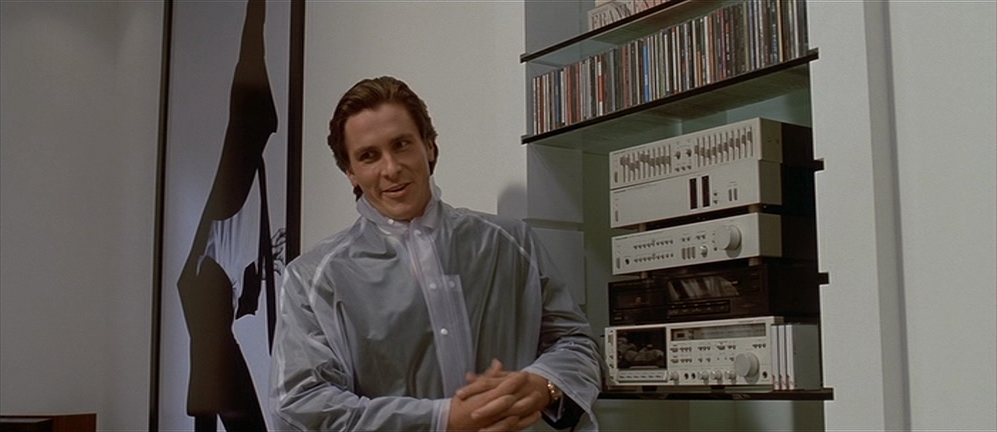
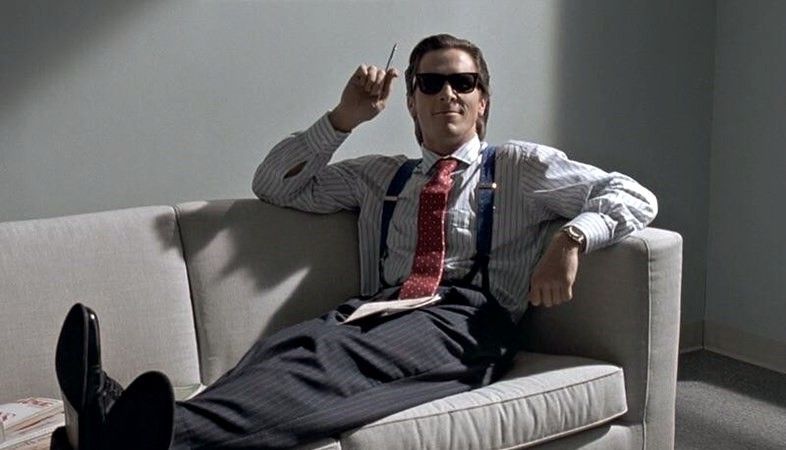
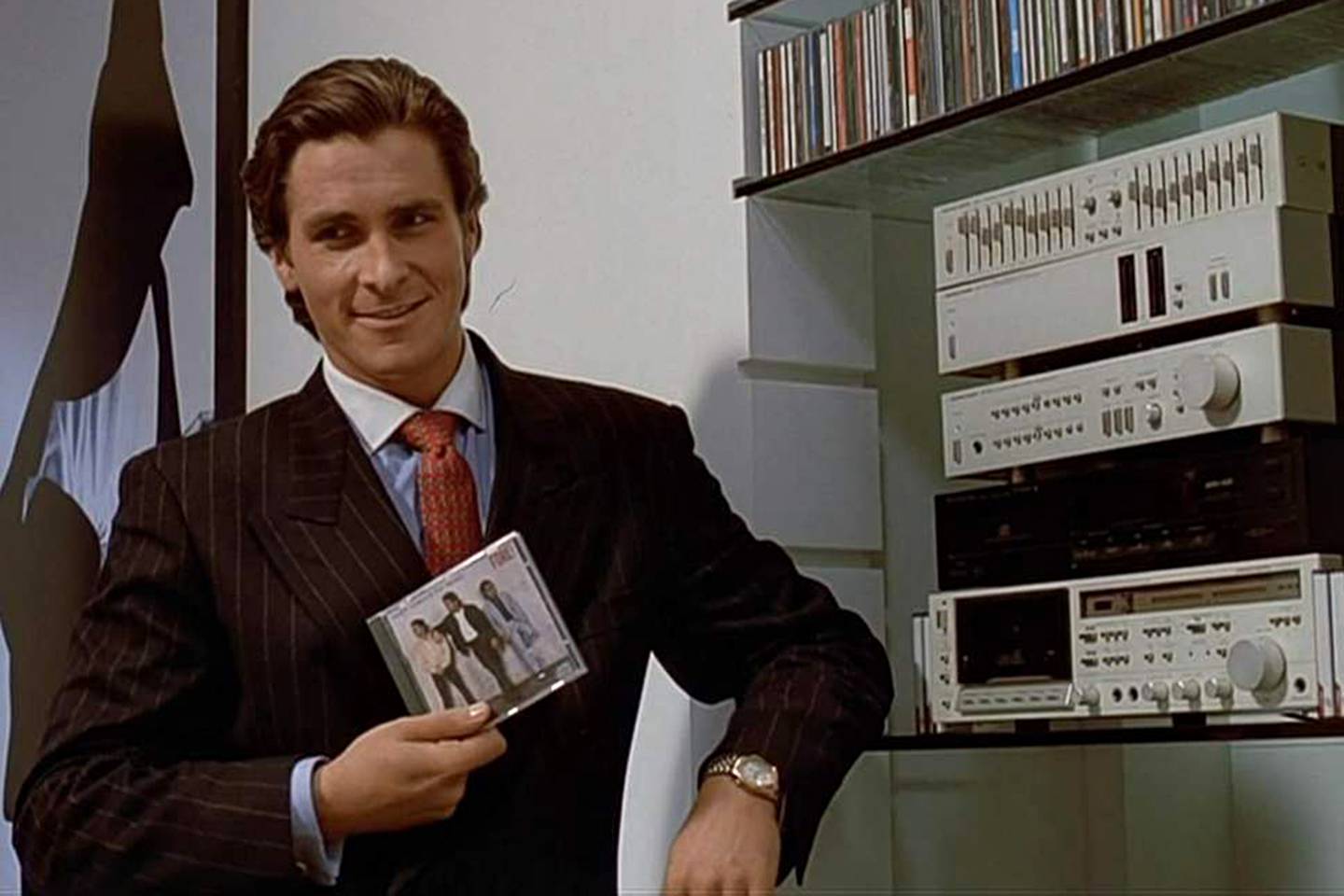
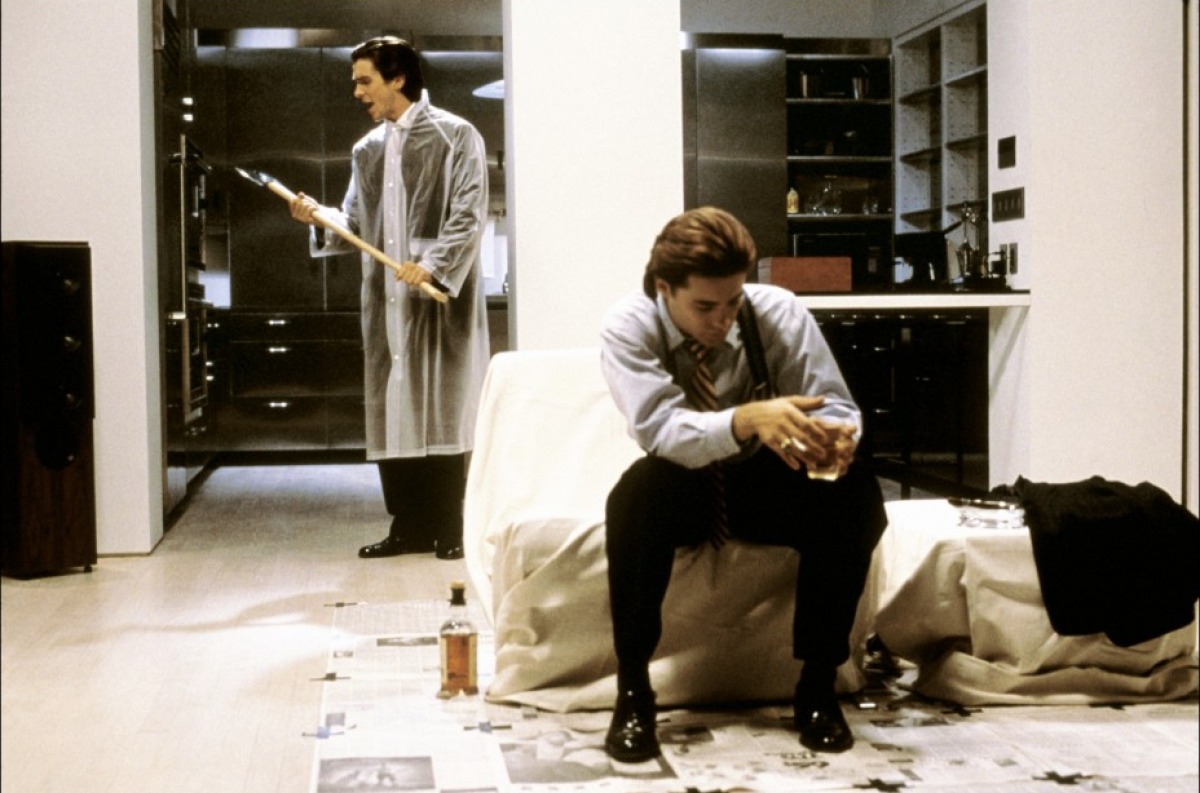
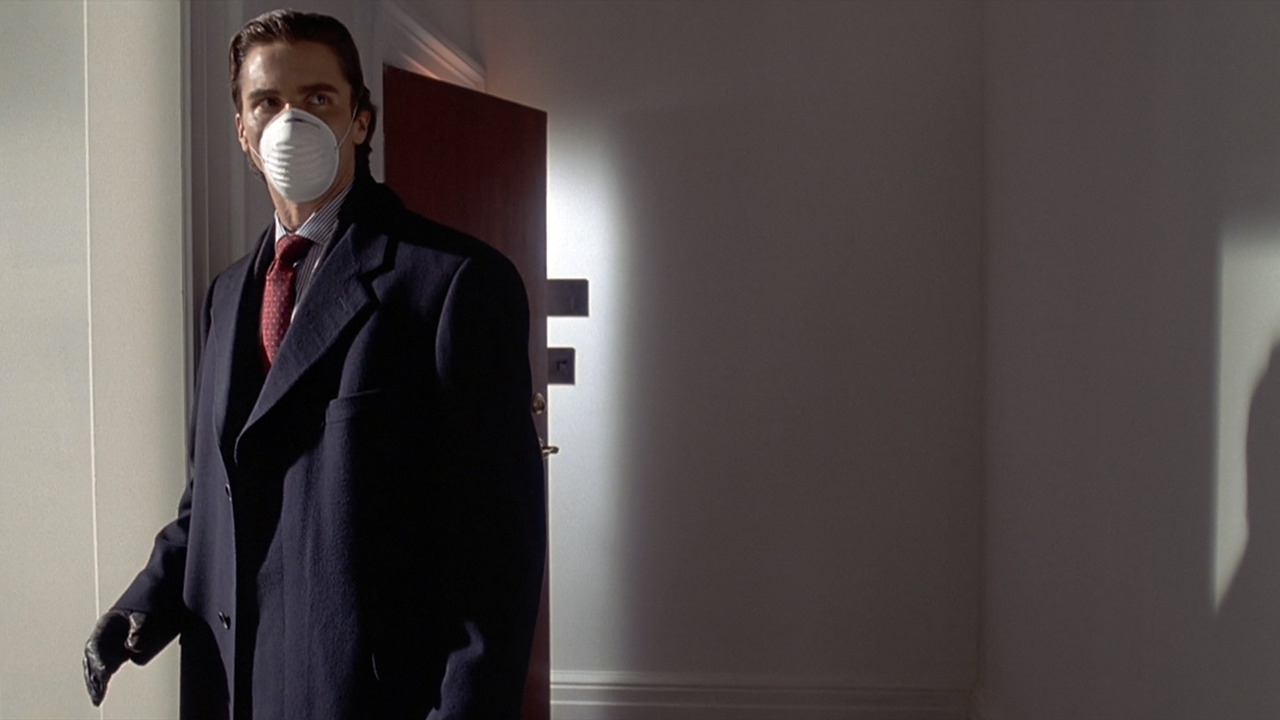
Break down Character
Fight Club
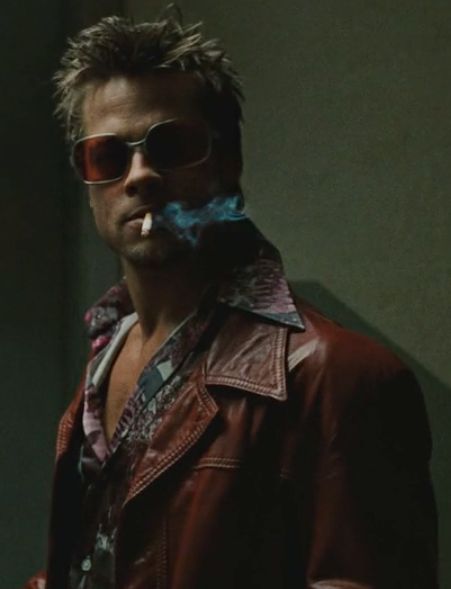
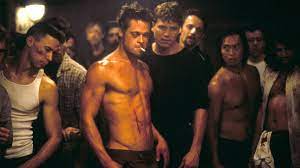
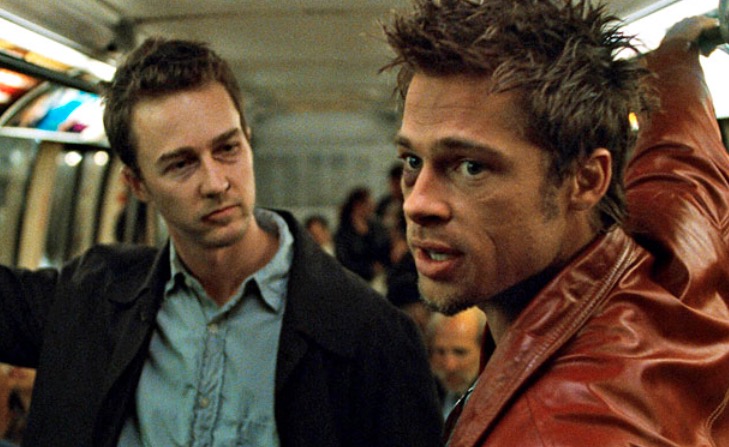
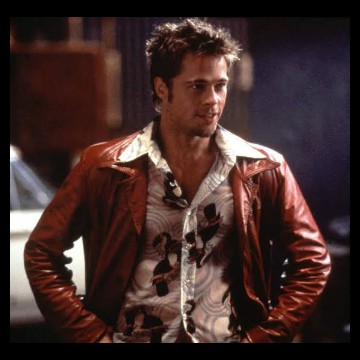
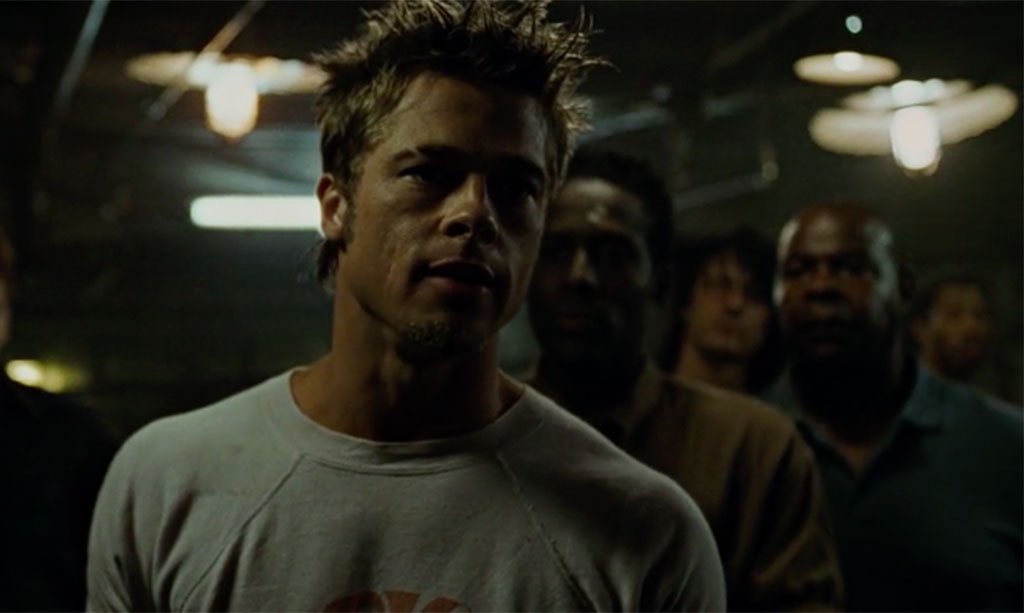
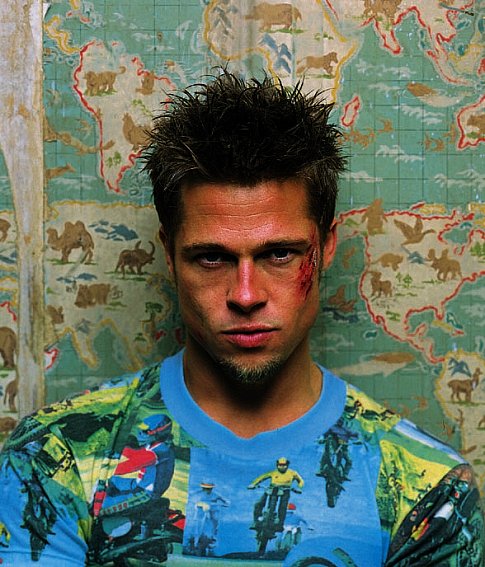
Tyler Durden - (Fight Club) - 1999
Like Patrick Bateman, Tyler Durden A.K.A the Narrator struggles with the monotony of post-modernism and the pleasures of conformity. In Tyler’s own words, everyone is a “copy of a copy”.
To fight against this, the Narrator searches for some form of connection to help cure him of his insomnia. He finds just that in various group meetings involved with testicular cancer patients, sickle cell anemia patients, and so on and so forth. Tyler feeds off their emotion like a parasite, something he lacks in his nine-to-five life until Marla Singer ruins everything.
In response, the Narrator creates Tyler Durden, a hyper-masculine version of himself which turns the focus on a crisis of masculinity in post-modernism. The men that join Fight Club are all struggling with-- y’know what, I’ll let Tyler explain; “I see in fight club the strongest and smartest men who've ever lived. I see all this potential and I see squandering. God damn it, an entire generation pumping gas, waiting tables, slaves with white collars, and advertising has us chasing cars and clothes, working jobs we hate so we can buy shit we don't need. We're the middle children of history man, no purpose or place, we have no Great war, no Great depression, our great war is a spiritual war, our great depression is our lives, we've all been raised by television to believe that one day we'd all be millionaires and movie gods and rock stars, but we won't and we're slowly learning that fact. And we're very very pissed off.”
Most importantly, Tyler too deals with a sense of alienation, a meaningless world, and a lack of connection.
Break down Character
Officer K
Officer K - (Bladerunner 2049) - 2017
A replicant who believes he is without a soul, Officer K tracks down others of his kind and “retires” them. K is especially looked down upon and alienated in his world, he is viewed as something other than human, more like a machine.
His world is completely artificial with mankind having completely lost its connection with nature, so badly that real trees are something of a myth. It is again this automatized and artificial world that grows a hollow emptiness in our protagonist.
He yearns for connection, to have meaning, to be “human”, and most importantly to have a soul. Joi, his artificial girlfriend is what he settles for in finding this, but a hologram that tells you everything you want to hear is far from an authentic relationship.
Visual Essay Version 2
Note To reader
Visual Essay Version 1
Masculinity in movies
https://www.theguardian.com/film/2018/nov/26/boys-on-film-what-we-can-learn-about-masculinity-from-hollywood
Glossary
Missing Voice Assignment Workshop 6
Within my project it is heavily centered around the “Literally Me” Characters. What they mean, do and express but what is missing is a voice that does not relate at all with the “Literally Me” Genre.
Last week I was discussing my Note To the Reader and from that came a discussion. Merlijn was talking and he expressed he does not identify with the “Literally Me” characters at all. Immediately I thought that I had found my voice. A few days later I made a questionnaire for Merlijn. The questions were open questions so I gave enough room to him to give answers. This is how to questionnaire was answered.
Before I started the questionnaire I gave a short description of my project and what Literally Me characters are about
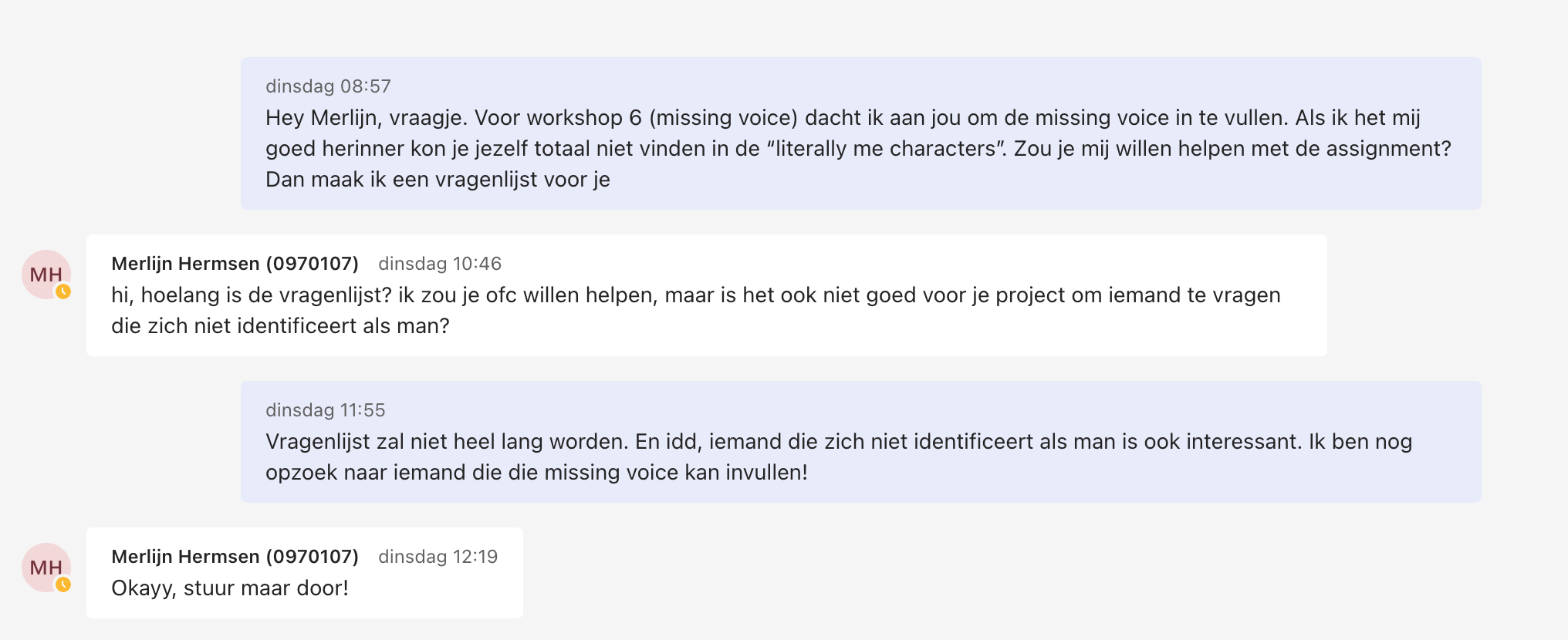
Questionnaire:
Q. What does Masculinity mean to you?
A. I find it hard to answer this question. I think (toxic) masculinity has definitely (negatively) influenced me in my childhood and teenage years.
For example,
I have always felt different then the other boys in my classes when I was a child/teenager. I also felt that was a bad thing, something I should fix about myself. I thought I should be more masculin to be heard, to be seen, accepted.
But being more ‘’masculin’ did not align at all with who I was and wanted to be. Although I feel like a man, I don't agree with the popular assumption of what a man should be.
People ask me this question a lot and I am not sure why, it is something I think about A LOT and I hope I can formulate a better answer in the future.
Q. What does a “Literally Me” Character mean to you?
A. Nothing, I never heard of this term before.
Q. Do you relate to a “Literally Me” Character? And If yes or no, why is that?
A. I don't know what characters count as ‘’literally me characters’’. But I assume a lot of these characters are from popular films/books/media?
In that case, yes I grew up with a lot of films with a male protagonist and most of the time I was invested in the story that the film was telling. However most of these characters are white, have a muscular body, perfect posture, basically creating this ‘’perfect’’ body for a man. That was something that always prevented me from fully relating to characters since I looked so different to them.
When I look back on my youth, the characters I related the most to were all of the hobbits in the lord of the rings trilogy, only I am not sure if they are literally me characters?
Q. If you look at this video, what does it mean to you?(https://www.youtube.com/watch? time_continue=11&v=T-fO7c9BbRY&feature=emb_title&ab_channel=Mental896)
A. As a filmmaker I just recognize the films and characters that are portrayed. I think for me it means that there are SO MANY other voices in this world and that this is just a very one sided, singular view on life. So I guess for me it maybe means that it is time for something new.
Reflecting
Need to Fill this in!!!
Masculinity:
Masculinity is defined as qualities and attributes regarded as characteristic of men. When we talk about masculinity, we're talking about a person's gender. Gender is a social construct, and is one of many ways we as humans make meaning and create social structures. A person's gender is based on how society sees them as a gendered being. Gender is based in part on biological characteristics (genitalia, facial hair, etc.), but it is largely based on society's idea of how a person of a particular gender should be. Gender is realized on a spectrum, one that intersects with a person's sex (physiological and biological), a person's sexual orientation (who they are attracted to), and their gender identity (how they see themselves as a gendered being, which may or may not align with their gender). These intersections are sometimes used interchangeably, but they are distinct, and each of us are a unique mix of these identities.
So, if gender is a social construct, it is important to know how the masculine construct is created. In the United States and in many Western cultures, the dominant masculine construct has been created for men by men. It is part of the day-to-day interactions that must be navigated by young boys as they grow into adulthood, and by men throughout their lives. It is everywhere – in films and TV shows, in advertising, music, video games, social media, sports commentary – and it is impossible to ignore.
This construct has been mis-labeled in recent years as "toxic masculinity." It is important to remember that although some behaviors associated with masculinity are harmful or toxic, masculinity itself is not. The construct is harmful, however, as it is a limiting definition of what a man is supposed to be.
Patriarchy:
The way I am going to tackle patriarchy is to look at the movie Fight Club and the characters within the movie, their relationships and behavior.
It is undeniable that Marla does not have a storyline independent of the male leads in Fight Club. She is also depicted as naked in the film’s sex scenes. However, the angle and momentary nature of the shots restrict her from being overly sexualized. The scenes are also central to the narrator’s later realization that he had been unconsciously engaging in acts as Tyler, which in turn affects the entire narrative of the film.
Nevertheless, Fight Club and its fight clubs are dominated by men, both literally and metaphorically. Tyler particularly suggests that their society represses the masculine aspects of men by forcing them to focus on clothing, shopping, and physical beauty, which are supposedly more “feminine”’ One of the members of Fight Club, Robert or “Bob”, is constantly referred to and demeaned due to his “feminine-looking” chest and other body features.
The narrator’s relationship and reconciliation with Marla also hint at a return to the integration of feminine values with masculine values (such as compassion with strength), and ultimately a rejection of gendered norms altogether. It is Marla who the narrator turns to when he realizes he needs to stop Tyler and Project Mayhem. At the same time, Marla as a character is made to instantly forget how she felt at the hands of the conflicting behavior of Tyler and the narrator when she holds hands with him, which is arguably unrealistic.
Fight Club has endured audiences till this date for its rapid descent into violent bodily urges that are instantly recognisable no matter who watches the film, but that is also because no absolute truth is attached with these experiences – neither the man nor the woman is upheld.
Literally Me:
“Literally me” Characters are those with whom the audience members can relate to. People on the internet would often post images which captions saying “He is literally me”. Later this hype went over to TikTok where it is posted everyday now. People make “Literally Me” edits on TikTok and people relate to the characters shown in that edit.
Characters that are being used in those edits are for example:
- Patrick Bateman
- Tyler Durden
- Luke Glanton
- Travis Bickle
- Lou Bloom
- Officer K
Instead of tackling the whole subject all at once, let’s break it down to one of the "Literally Me" characters and see what we can understand about him and what he represent.
Tyler Durden - (Fight Club) - 1999
Tyler Durden A.K.A the Narrator struggles with the monotony of post-modernism and the pleasures of conformity. In Tyler’s own words, everyone is a “copy of a copy”.
To fight against this, the Narrator searches for some form of connection to help cure him of his insomnia. He finds just that in various group meetings involved with testicular cancer patients, sickle cell anemia patients, and so on and so forth. Tyler feeds off their emotion like a parasite, something he lacks in his nine-to-five life until Marla Singer ruins everything.
In response, the Narrator creates Tyler Durden, a hyper-masculine version of himself which turns the focus on a crisis of masculinity in post-modernism. The men that join Fight Club are all struggling with-- y’know what, I’ll let Tyler explain; “I see in fight club the strongest and smartest men who've ever lived. I see all this potential and I see squandering. God damn it, an entire generation pumping gas, waiting tables, slaves with white collars, and advertising has us chasing cars and clothes, working jobs we hate so we can buy shit we don't need. We're the middle children of history man, no purpose or place, we have no Great war, no Great depression, our great war is a spiritual war, our great depression is our lives, we've all been raised by television to believe that one day we'd all be millionaires and movie gods and rock stars, but we won't and we're slowly learning that fact. And we're very very pissed off.”
Most importantly, Tyler too deals with a sense of alienation, a meaningless world, and a lack of connection.
The movies from which these characters originated were compiled into lists where most of them overlapped with one another extensively, thus creating the “literally me genre.”
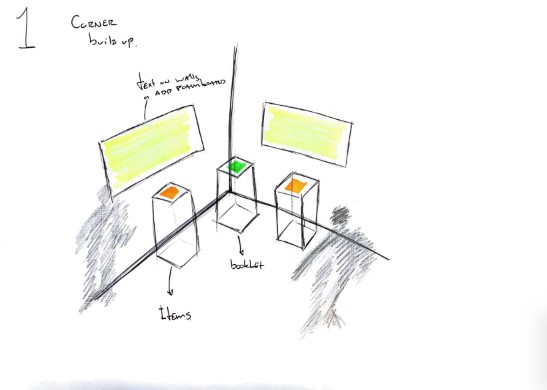
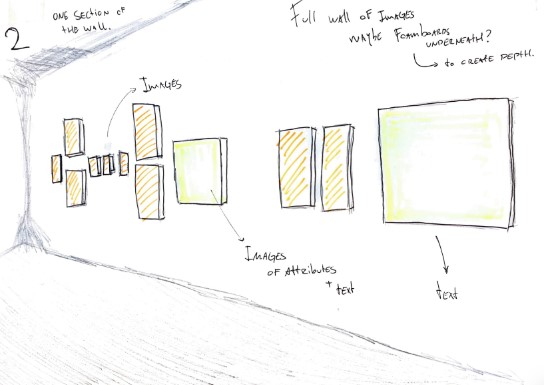
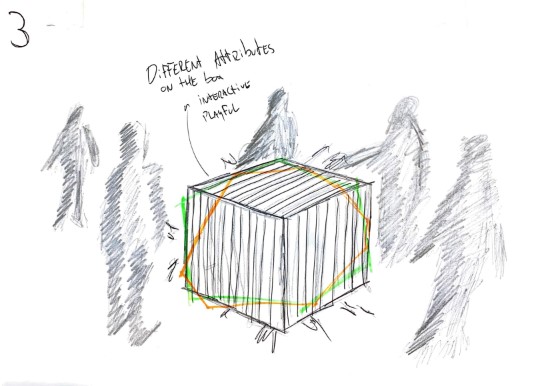
Various Options of exhibiting the work
In this option we would have a corner. On the walls we would put text, explaining the concept and idea behind masculinity and Literally Me Characters
In this option it would be in the center of the room where I would put a self made box containing everything we did.
In this option we would have one wall where we could hang things on. The images that would be displayed are the images above this post. There would again be text on the walls.
How to go and publish my work/project?
I would like to publish my work digitally and bring it out in the world. Upload it on YouTube. The reason for that is because it is a platform where topics like this can be discussed in the commentsection.
As for the final exhibition I would like to use a beamer to showcase my video on my project, The final work will be my view on masculinity, what I worked on, What I discovered, What the characters mean and open it for discussion.
Exercises during class (Lila)
Final Video
Visual Essay Final
Citation
Final Set up
Theory Cards
Research Paper